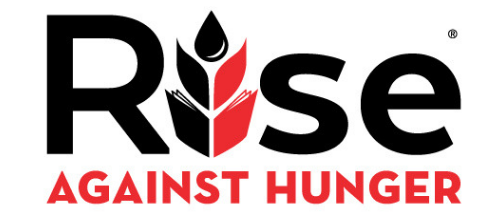Did You Know? The Nutritional Value of Rise Against Hunger’s Meals

If you’ve ever participated in one of our meal packaging events, you may have asked yourself (or one of our staff!) why the ingredients you’re packaging — rice, soy, dehydrated vegetables and a micronutrient packet — are included. We’re here to answer your questions, explaining the nutritional value of Rise Against Hunger meals and why providing nutritious food to the communities we serve is so important.
Are Rise Against Hunger meals nutritious?
Rise Against Hunger meals pack a nutritious punch! Our volunteer-packaged meals both provide caloric intake and contain 20 essential vitamins and minerals. Research has shown that one in three people in developing countries is adversely affected by vitamin and mineral deficiencies. Our meals address the top concerns for micronutrient deficiencies (iodine, iron and vitamin A) and work to prevent other common deficiencies among at-risk populations. Addressing these deficiencies helps prevent blindness, poor immune function and death.
The ingredients in Rise Against Hunger meals are also used because they are appropriate for most diets. The meals are rice-based, vegetarian and can be augmented with locally available food and spices.
In addition to our volunteer-packaged meals, our other hunger relief efforts prioritize nutrition, too. Our local and regional food procurement efforts and nutrition-smart sustainable agriculture projects both focus on the nutritional quality of food.

Why is it important to not just provide food but to provide nutritious food?
Food security does not exist without nutrition security. The two are inextricably linked because adequate nutrition is necessary to truly alleviate hunger. Quantity doesn’t equal quality. Chelsie Azevedo, Rise Against Hunger’s Nutritional Technical Advisor, explained why in a previous blog: “It’s the difference between eating bread every day or a diverse diet incorporating all the food groups every day. One satisfies your hunger while the other enriches your body to reach its full potential.”
The United Nations Sustainable Development Goal 2: Zero Hunger also emphasizes the importance of nutritious food in addressing hunger. One of the goal’s targets is to ensure all people have access to “safe, nutritious and sufficient food.”
How do food security and nutrition impact health?
Food and nutrition security and health are connected. According to the World Health Organization, nutrition impacts immune systems, pregnancy and childbirth, childhood development and the risk of contracting disease. Addressing food and nutrition insecurity can impact health in many ways.

What are the benefits of adequate nutrition for the people we serve?
Adequate nutrition can improve maternal health, support a child’s academic performance, promote poverty reduction and more.
A large percentage of Rise Against Hunger meals are distributed to children through school feeding programs, which encourage attendance and ensure children are not hungry during school. Adequate nutrition boosts a child’s cognitive ability and physical performance, which supports their ability to do well in school. Continuing their education and succeeding in school has a huge impact on their chance at a bright future and helps ensure they’re able to reach their full potential!
Want to keep learning about Rise Against Hunger’s approach to nutrition and food security? Check out our blog about why nutrition security is vital for food security.

